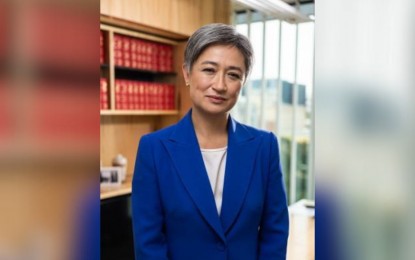
Australian Foreign Affairs Minister Penny Wong (Photo courtesy of Australia Ministry of Foreign Affairs)
MANILA – Australia on Wednesday renewed calls for the Association of Southeast Asian Nations (ASEAN) to negotiate a Code of Conduct (COC) on the South China Sea that would not impact the rights of outside parties.
While Australia is a non-claimant state, visiting Australian Foreign Minister Penny Wong said the country has a stake in the busy sea lane, where trillions of dollars’ worth of trade pass through annually.
“We respect ASEAN centrality and they have, as an entity, a right to discuss these issues,” she said in a CNN Philippines interview.
“All we are saying as a party that has an interest, as many do in the South China Sea and in international law, is we would urge states not to agree to anything that lessened their rights.”
In the past, Australia said any document that impacts the current rights of states under international law to exercise freedom of navigation and conduct military exercises with partners in the region “would be a cause of concern for Australia.”
The COC is being drawn up by China and members of the ASEAN to serve as an upgraded and more binding version of the 2002 Declaration of Conduct on the South China Sea. While not meant to resolve the maritime row, the accord is expected to help manage tensions and reduce the risk of confrontations in the area where China has overlapping territorial claims with the Philippines, Brunei, Vietnam, and Malaysia.
During the ASEAN Summit last week, President Ferdinand R. Marcos Jr. urged his fellow leaders to push for the early conclusion of the COC. Meanwhile, Wong noted that Canberra would work with Manila in promoting a region that is “stable, peaceful, and prosperous.”
“(W)e all want a region in which rules ameliorate the exercise of power. And it is through that that countries can maintain their sovereignty and their capacity to make their own decisions,” she said.
She also emphasized Australia's continuous support for the country’s 2016 arbitral win and its assertion of its national interests.
“And we will continue to be, because ultimately, states like us – so, we regard ourselves, we're not a great power. Some call us a middle power, but we want a region where norms and rules continue to apply,” Wong said.
“We don't want a region which is dominated to an extent where other countries cannot make their own decisions. And so for us, the UN Convention on the Law of the Sea is important.” (PNA)
